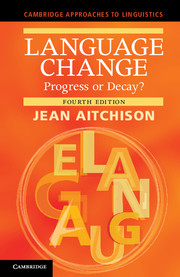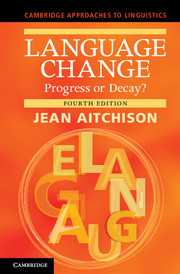Why Do Languages Change?
The first recorded English name for the make-up we now call blusher was paint, in 1660. In the 1700s a new word, rouge, displaced paint, and remained in standard usage for around two centuries. Then, in 1965, an advertisement coined a new word for the product: blusher. Each generation speaks a little differently, and every language is constantly changing. It is not only words that change, every aspect of a language changes over time - pronunciation, word-meanings and grammar. Packed with fascinating examples of changes in the English language over time, this entertaining book explores the origin of words and place names, the differences between British and American English, and the apparent eccentricities of the English spelling system. Amusingly written yet deeply instructive, it will be enjoyed by anyone involved in studying the English language and its history, as well as anyone interested in how and why languages change.
- No prior knowledge of the subject is required
- Includes examples from many languages with primary attention given to changes in English
- Each chapter is sufficiently independent of the others to be read on its own
Reviews & endorsements
'Clear, sensible and stimulating … a fine memorial to the late Larry Trask. This book deserves to succeed as a splendid introductory text for anyone interested in language change.' Jeremy J. Smith, University of Glasgow
'Trask's enthusiasm and learning are obvious … will give its readers more enjoyment than many other volumes on the subject …' The Times Literary Supplement
Product details
No date availablePaperback
9780521546935
210 pages
228 × 153 × 10 mm
0.35kg
8 b/w illus. 11 tables
Table of Contents
- 1. How do languages change?
- 2. Why are languages always changing?
- 3. Where do words come from?
- 4. Skunk-Leek – my kind of town: what's in a name?
- 5. Where does English come from?
- 6. Why is American English different from British English?
- 7. Why is English spelling so eccentric?
- 8. Which is the oldest language?







